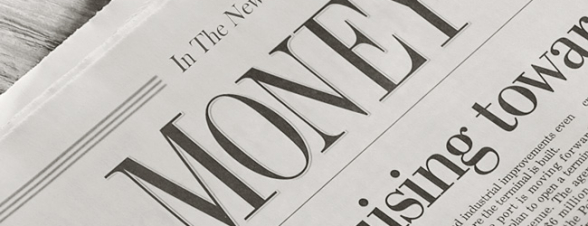UK Votes Yes For Brexit
We are all surprised. The votes are in and the United Kingdom (UK) has chosen, 52-48%, to leave the European Union (EU). The news sent financial markets into a tail spin. The Stoxxx 600 fell nearly 7%, the FTSE 100 over 3%, and American indices down 3%. Below, we have provided short and simple answers to common questions about the event.
What is the European Union?
The European Union (EU) is an economic and political union of 28 European Nations, called member-states, founded in 1992. The real beginnings of the EU can be found in the ashes of the Second World War. Europe, for the second time in a half century, had torn herself apart. Western leaders finally began to see the utility in tying the various nations of Europe together to build a single European community. Britain’s great war-time leader Winston Churchill was amongst the first European leaders to call for the formation of a European Union, which he referred to as a “United States of Europe”, saying ‘[w]e cannot aim at anything less than the Union of Europe as a whole, and we look forward with confidence to the day when that Union will be achieved.” Despite Churchill’s endorsement, the formation of the EU was a slow process. It began with the formation of the common market or European Economic Community (EEC) in 1957 when a number of European states created a single free market area. This was followed by the creation of the Schengen Area in 1985, which eliminated passport controls. Finally, in 1992, the EU was formed. The EU sought to ensure free trade, free movement, common policies on trade and agriculture, and protection of human rights. In this way, the EU is similar to the Federal Government in the United States. However, unlike the United States, member states in the EU have the right to leave.
Why did the UK vote to leave?
The UK’s place in the EU is unique. The UK was not a founding member of the EEC. In fact, when the UK first sought to join in 1961, it was rejected. In 1975, two years after the UK did finally manage to join the EEC, the UK held a referendum on leaving. Supported by then conservative party opposition leader Margaret Thatcher, the referendum failed and the UK remained. Since then, the UK has maintained an arm’s length relationship with the EU. When the Schengen Area was established, the UK did not join in. When the EU adopted the euro as its common currency in 1995, the UK did not join in. For various historical and cultural reasons, the UK has always had an uneasy relationship with the EU. The paramount of these reasons are concerns over immigration, self-determination, and fear that EU regulations are hampering job growth.
What will happen now?
Short-term, the UK’s decision to leave the EU has shocked world markets. Uncertainty regarding the future of the UK and of the EU has sent markets into a nose dive. For Britons, the fear is that trade barriers will significantly increase costs for European goods in Britain while reducing exports to the EU, Britain’s largest trading partner. For the EU, there are worries that this is only the first brick to fall and that other nations, such as the Netherlands, will soon follow with their own referenda. For many smaller European nations, one worry is that the exit of the world’s fifth largest economy and second largest economy in the EU will give Germany too much power. It is important to note, however, that short-term the result is only to create uncertainty. There is still a possibility that Parliament will keep the UK in the EU. Prime Minister David Cameron has called for a new election. The government that replaces his, if it chooses to leave, will then have to structure an exit. Article 50 of the Lisbon Treaty sets the path to exiting the EU. If Parliament invokes that article, then there will be a two-year time horizon to negotiate an exit. In that time, a lot could happen.
What has Deighan Wealth Advisors done?
We recently reduced client portfolio exposure to US equities by 1% and to developed international equities by 1%, using the proceeds to increase positions in Treasury Inflation Protected Securities. Though this move was timely and will reduce the effect of the Brexit vote on client portfolios, it was not a last minute bet on Brexit. We reduced the offensive side of portfolios to reduce volatility in client portfolios generally. We do not attempt to time the market and do not encourage anyone else to either. We will continue to structure client portfolios to weather these uncomfortable market dips and to participate in future growth by diversifying assets and investing for the long-term. As always, we are here if you would like to discuss your investments. Please do not hesitate to contact us with your questions and concerns. In the mean time we will “keep calm and carry on!”

